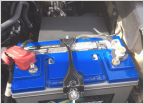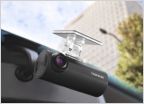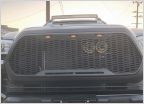-
Welcome to Tacoma World!
You are currently viewing as a guest! To get full-access, you need to register for a FREE account.
As a registered member, you’ll be able to:- Participate in all Tacoma discussion topics
- Communicate privately with other Tacoma owners from around the world
- Post your own photos in our Members Gallery
- Access all special features of the site
Amps Out at 7Way Charge Line on a 2019 Tacoma B
Discussion in '3rd Gen. Tacomas (2016-2023)' started by Aquatic Tacoma, Oct 4, 2019.
Page 2 of 2
Page 2 of 2


 New Guy Roast/Fumoto Valve Durability
New Guy Roast/Fumoto Valve Durability Pelfrybilt cage alternatives
Pelfrybilt cage alternatives Dashcam
Dashcam I phone mount
I phone mount Because HELLA Horns
Because HELLA Horns Swapping the RC62F Manual Transmission for the RC60F
Swapping the RC62F Manual Transmission for the RC60F














































































